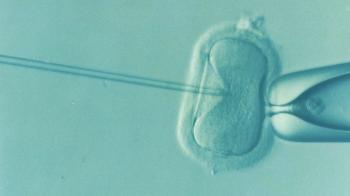Children and adolescents who defected from North Korea have 1.3 times higher risk of mental illness...Adults 2.1x ↑
Aug 19, 2025
|
A research team led by Hong Min-ha, a professor at Gangdong Kyunghee University Hospital, said in a large cohort study that analyzed 15 years of data that the incidence of major mental diseases such as post-traumatic stress disorder (PTSD), depression, and ADHD was significantly higher in North Korean defectors and adolescents. The study was recently published in the international journal `JAMA Network Open' published by the American Medical Association (JAMA).
Professor Hong Min-ha's research team analyzed 15 years of data from 1,618 North Korean children and adolescents and 308,000 South Korean children and adolescents, and found that North Korean children and adolescents had about 1.3 times higher risk of developing mental illness than domestic children and adolescents. In particular, statistically significant differences were observed in post-traumatic stress disorder (PTSD), attention deficit hyperactivity disorder (ADHD), major depressive disorder (MDD), bipolar disorder, and anxiety disorder. There was also a consistent trend in multivariate analysis that corrected various factors such as gender, age, and income level.
The study, titled `Psychiatric Health Risks in North Korean Refugee Youths Reserved in South Korea', was jointly conducted by Professor Hong Min-ha of the Department of Mental Health Medicine at Kangdong Kyung Hee University Hospital, Dr. Lee Ru-gyeom of Kyung Hee University Graduate School of Medicine, Professor Lee Sang-min of Kyung Hee University Hospital, and Professor Oh In-hwan of Ulsan University. This is a nationwide cohort study using health insurance claims data from the National Health Insurance Corporation (NHIS), and between 2007 and 2010, North Korean defectors and ordinary children and adolescents in South Korea were extracted, matched at a ratio of 1:10 based on gender and age, and followed up with mental illness between the two groups for up to 15 years. Through this, the mental health progress from adolescence to early adulthood was analyzed for a long time and the occurrence patterns of mental illness were compared.
The research team announced in the JAMA Network Open that the risk of mental illness is about 2.1 times higher than that of ordinary adults in Korea in an analysis of adult North Korean defectors in 2022. This study on children and adolescents is of great academic significance in that it is the first large-scale cohort analysis in Korea to objectively verify the impact of environmental factors on children and adolescents' mental health after migration through comparisons within groups with the same language and ethnic background. In particular, the fact that the gap in the risk of developing mental illness remains not only for the first two years of settlement but also for more than 15 years suggests that it is a structural risk factor, not a temporary adaptation problem. This supports the fact that short-term medical access or one-time adaptation support alone cannot bridge the mental health gap.
Professor Hong Min-ha said, "North Korean refugee children and adolescents share the same language and culture, but due to their background in growing up in a completely different social and political environment, there are inevitably accumulated vulnerabilities in terms of mental health." "This study empirically confirmed how environmental factors affect the actual onset of mental illness, and it can be used as a basis for establishing medical and educational policies for refugee children and adolescents in the future."
Professor Hong Min-ha specializes in mental health for children and adolescents, and has continuously conducted research on multicultural and North Korean refugee families, including mental health for children and adolescents. This study is the first statistically systematic analysis of the occurrence of mental illness in North Korean refugee children and adolescents over time, and is of great academic significance in that a large-scale data-based quantitative approach has been taken in Korea.
|
This article was translated by Naver AI translator.















